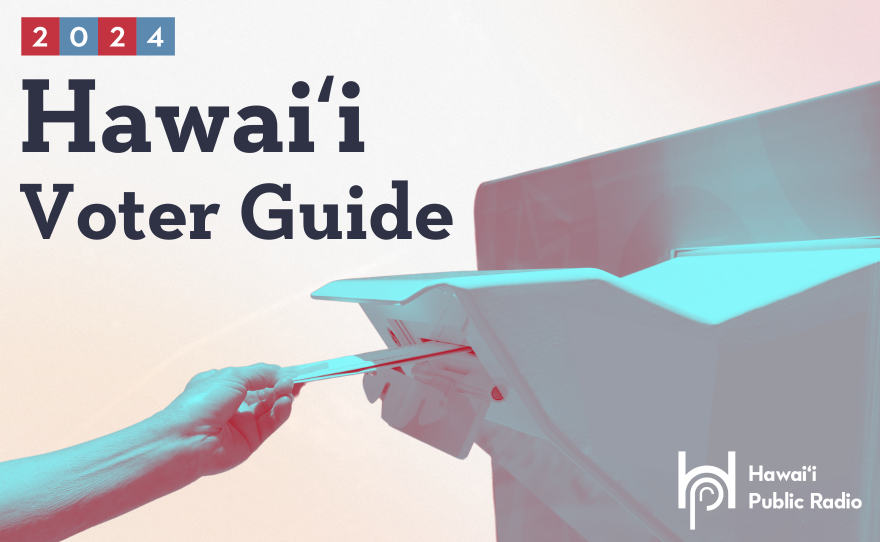Office of Hawaiian Affairs 2024 election: Here's what to know

What is OHA? The Office of Hawaiian Affairs grew out of organized efforts in the 1970s to remedy past wrongs suffered by Native Hawaiians. OHA seeks to improve the conditions of Native Hawaiians through programs and services related to education, health care, housing and more.
The semi-autonomous state agency is funded by income from the public land trust, which includes land taken during the overthrow of the Hawaiian Kingdom.
OHA is governed by a nine-member Board of Trustees elected by all Hawaiʻi residents, not just Native Hawaiians. Before 2000, trustees were elected solely by Native Hawaiian voters. In the 2000 case Rice v. Cayetano, the U.S. Supreme Court ruled that restricting voting to Native Hawaiians was unconstitutional.

Trustees are responsible for setting OHA policy and managing the agency's endowment. One example is OHA's effort to develop Kakaʻako Makai, also known as Hakuone, into a waterfront area with residential high rises. OHA also pursues legal action on issues important to Native Hawaiians, such as the management of Maunakea.
The trustees also hire OHA's CEO, who leads the administrative side of the agency. The board meets regularly at OHA headquarters in Honolulu — and at least once annually on each major island.
Voting for OHA
Four of the nine trustees represent the whole state. The other five trustees represent one of the following districts: Hawaiʻi Island, Maui, Molokaʻi and Lānaʻi, Kauaʻi and Niʻihau, and Oʻahu.
However, all candidates run statewide elections. Voters will see races for candidates seeking to represent islands other than their own. Trustees are elected to four-year terms with no term limits.
While voting for OHA candidates may be a right, it's not a custom. In the 2022 primary election, 41.5% of ballots left the Oʻahu resident trustee race blank. Blank votes and name recognition have been dominant factors in determining winners.
2024 General Election:
For the seat representing Molokaʻi and Lānaʻi, incumbent Luana Alapa will face R. Kunani Nihipali on Election Day in November. Alapa received just under the 50% required to win the seat outright in the primary.
In the crowded primary for the at-large seat, incumbent Keliʻi Akina was the top vote-getter with former trustee Lei Ahu Isa trailing behind. They move forward to the general election, beating out five others.
The candidates for the district of Kauaʻi and Niʻihau automatically advanced to the general election because there were only two: incumbent Dan Ahuna and Laura A. Lindsey.
Former U.S. Rep. Kaialiʻi Kahele secured enough votes in the primary election to win outright the race to represent Hawaiʻi Island on the Board of Trustees. He beat Z. Kaʻapana Aki, Hope Alohalani Cermelj and Hulali Waltjen-Kuilipule.
Current Hawaiʻi Island trustee Mililani Trask did not seek reelection.
If an OHA candidate receives a majority of the votes cast in that specific primary race, then the candidate is deemed elected. Otherwise, the top two candidates advance to the general election.
-
Two well-known candidates are competing for the Office of Hawaiian Affairs at-large seat in the upcoming general election. In the crowded primary, incumbent Keliʻi Akina was the top vote-getter with former trustee Lei Ahu Isa trailing behind. HPR’s Cassie Ordonio breaks down the issues at hand.
-
Luana Alapa has served on the Office of Hawaiian Affairs Board of Trustees since 2020. Now, she faces challenger Kunani Nihipali, a farmer and former Honolulu police officer. HPR's Cassie Ordonio breaks down the issues in the upcoming election.
-
The race for the Kauaʻi and Niʻihau seat in the Office of Hawaiian Affairs is between incumbent Dan Ahuna and relative political newcomer Laura Lindsey. The two will face off at the Nov. 5 general election.
Election Resources:
- The current Board of Trustees
- Find a voter service center or ballot drop box
- Register to vote online
- Track your ballot with BallotTrax




